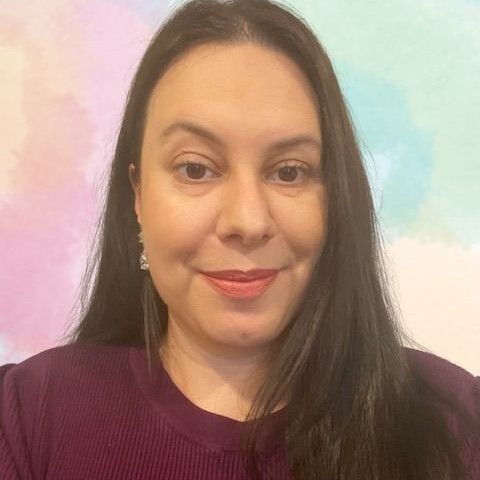Huntr Blog
What is a Cover Letter: The Ultimate Guide in 2025
April 11, 2024
When applying for jobs, you might notice that employers often request a cover letter. This is a separate document you’ll need to create alongside a resume. A cover letter helps hiring managers better understand who you are beyond your work experience to help them decide whether or not they should hire you for this position. In this post, we’ll explore what a cover letter is, the types of cover letters, why you should include a cover letter with your resume, and so much more.
Need to write a cover letter but don't know what it is?
Sign up for Huntr to instantly generate an AI cover letter for a job application in seconds.
What is a cover letter?
A cover letter is a document you provide alongside a resume to describe your work experience, qualifications, and motivations while showcasing your personality to entice hiring managers to give you an interview. A cover letter is a 250 to 400 word letter, usually about a page in length, you write to an employer to try to win them over by explaining more context alongside your resume.

What should be included in a cover letter?
There is a correct way to format your cover letter. Here are a few things that you need to add to your cover letter to ensure it’s optimized for your success.
- Today’s date: As a cover letter is a formal letter to employers, it’s typical to include today’s date.
- Contact information: You want the employer to be able to reach you after receiving your cover letter. Include your name, city and state/province, phone number, and email address. Make sure you have a professional email address that includes your name.
- Employer’s contact information: Include the name, title, company name, and city of your hiring manager. If the company is remote, you can remove the city from the letter. You’ll often find the hiring manager’s name listed on the posting on LinkedIn. If you can’t find their name, you can address the cover letter as “To whom it may concern” or other variant.
- Greeting: You’ll often address the letter as “Dear (Mr./Ms. Last Name).” If you’re unsure of whether they go by Mr. or Ms. it’s best to address it by their first name. Accidentally, misgendering someone can create a negative first impression.
- Introduction: State which position you’re applying for and why. You could also include how you found the role.
- Why someone should hire you: Think about what unique things you’ll bring to the role that’ll be of utmost importance to a hiring manager. Reflect on your biggest accomplishments, hard or soft skills, character traits, education, or work experiences that make you the perfect fit for this exact role. By highlighting your biggest achievements or strengths that you’ll bring into the role, you’ll better position yourself to a hiring manager.
- Company connection: Draw the connection between why you want to work for this exact company. It’s not just about making the fit happen for the role you’re applying for but also for the company. Do you possess the company values? Have you worked in this industry before?
- Resume gaps: If you have a gap in between jobs, such as a leave of absence, layoff, or parental leave, you’ll want to disclose that in your cover letter. This helps prevent hiring managers from assuming the worst.
- Closer: Include a concluding paragraph summing up why you think you’re the right fit for this position. This conclusion should include a call-to-action to entice them to schedule an interview with you. And you’ll want to thank them for considering your application.
What should not be included in a cover letter?
There are certain things that are best to leave off of a cover letter. For example, you won’t want to disclose personal information, such as marital status, age, political affiliations, etc. You also don’t want to negatively speak about employers nor give negative comments about why you left your previous role. This is a fresh start, start this next chapter on a positive note. A cover letter isn’t an ideal place to mention your salary expectations for the role. You’ll also want to triple check your cover letter for spelling and grammatical errors. Lying or exaggerating on a cover letter is also frowned upon. You’ll want to back up your claims with evidence or explain how you got those results.

Types of cover letters
There are various types of cover letters you would use depending on the context of the job you’re applying for. Here are a few to consider:
- Application cover letter: This is the most standard type of cover letter people use when applying for jobs. In this cover letter, you’ll explain why the company you’re applying to should hire you by highlighting your biggest strengths and achievements in your career.
- Networking cover letter: When you’re referred by someone to a job, you might write this cover letter to mention the person who referred you to this position and why you think you’d be a great fit for the role.
- Cold contact cover letter: If you’re hoping to create a job opportunity for yourself when a company hasn’t advertised a position, you might write a cold contact cover letter to entice them into creating a role for you.
- Career change cover letter: In the event you’re making a drastic career change, you’ll use this cover letter to explain your past work experience and your transferable skills or educational background to consider you for this next phase of your career.
- Letter of intent: When applying for scholarships, to academic programs or bootcamps, or for business partnerships, you might write a letter of intent to explain why you’re interested in this opportunity and what you hope to gain from it. Reviewing a letter of intent template can help you structure your message more effectively.
Example of a cover letter
Here is an example of a cover letter:
Dear Hiring Team at (Company),
I am writing to express my enthusiastic interest in the (Job Title) position at (Application Company). After reading the job description and learning more about the innovative work culture at (Application Company), I am confident that my diverse background and strong passion for creating compelling content make me a perfect fit for this role.
Having worked in various marketing roles, from (Job Title) at (Previous Company) to (Job Title) at (Different Previous Company), I have honed my skills in crafting engaging and impactful (skill) that resonates with audiences. I have experience in developing successful (core skill) strategies, managing projects, and collaborating with cross-functional teams to achieve common goals.
What excites me the most about the opportunity at (Application Company) is the chance to work with cutting-edge technologies and be part of a company that values personal growth, continuous innovation, and a fun work environment. I am eager to bring my (skill) abilities and strategic mindset to achieve targets and showcase (Application Company)’'s products and value propositions in a compelling way.
My background in working with technical and business decision-makers in the (industry) space, coupled with my experience in content creation and project management, aligns perfectly with the responsibilities outlined in the job description. I am confident that I can bring a fresh perspective and drive impactful results in this role.
Moreover, I am truly inspired by (Application Company)'s commitment to providing employees with endless possibilities for learning and making a difference in the world. I am excited about the opportunity to work alongside talented individuals and contribute to (Application Company)'s mission of simplifying business mobility solutions.
Thank you for considering my application. I am looking forward to the possibility of contributing to the exceptional work being done at (Application Company) and being part of a team that values (list three application company values).
Warm regards,
(Your Name)

Why should you include a cover letter with your resume
There are countless reasons why you should include a cover letter with your resume. Here are a few of them:
- Present your skills: Including a cover letter allows you to elaborate on the skills you talk about on your resume. You can include a quick tidbit about those skills or tie them to an accomplishment you’ve had to explain how you’ve developed those skills.
- Highlight your accomplishments: Since most accomplishments on a resume are only a one-line bullet point, a cover letter allows you to elaborate on your key achievements to help you better position yourself. Your process for accomplishing something could be very exciting and novel to a hiring manager who hopes to achieve the same thing on his or her team.
- Explain career gaps: Hiring managers do notice career gaps. And when they aren’t explained, they assume the worst: firing. However, when you have a cover letter, you can write a short sentence or two about what the gap is about to help give a hiring manager context and to help encourage them to consider you despite it.
- Explain career changes: If you’re doing a major career transition, such as nursing into tech or teaching into engineering, you likely won’t have much traditional work experience to be considered. However, when you write a cover letter about why you think you’d be a good fit, it gives you an opportunity to expand on what you’ve been doing to become qualified for this transition, such as online courses, freelance jobs, a side hustle practicing it, volunteer work.
- Showcase personality: If your writing style is engaging, you’ll be able to showcase who you truly are in a magical light. Whether you’re witty, funny, or just an interesting storyteller, you’ll be able to capture the excitement of a hiring manager when you write a cover letter that highlights who you are.
- Draw connections to the job posting and your experience: A tailored resume and cover letter helps you draw connections between the job posting and your experience. You can explain why you think you’d be a great fit for this exact role by touching on the similarities between your work experience and what the job is asking for.
- Demonstrate attention to detail: A cover letter is a written letter where you’ll be writing and explaining yourself to a hiring manager. They’ll be checking for typos and grammatical issues to see how attentive you are to detail. If your role requires writing, they might also use it to assess your writing skills.
- Give further context: A cover letter is great for adding alongside a resume as it allows you to provide more context than a resume could. You could elaborate on how you achieved things in greater detail to help excite a hiring manager to want to interview you and chat about the role.
- Stand out from other candidates: Most candidates only apply with a resume. When a hiring manager receives a tailored cover letter it helps give you a more favorable advantage.
Who reads cover letters?
Typically hiring managers and recruiters read cover letters. However, they could be read by your future teammates as well depending on how many layers of interviews you have. Overall, you want the tone of your cover letter to be positive (no negative remarks about past employers or pet peeves). Since you don’t know how you’ll be perceived, keep the tone on why you're the most qualified candidate for the job. Get to the point about your qualifications and accomplishments and be explicit in drawing connections between yourself and the company.
Have a friend or family member read your cover letter to assess it for its tone and how it might be perceived by someone else. If you’re too embarrassed to do this, it’s likely a sign that you need to make changes to it. While it may only be one person reading your cover letter, it’s also possible that up to 10 people end up reading it. And with that many eyes on it, judging your every word to see if you’re a good fit for a role or not, you’ll want to ensure that you get a second opinion before uploading your cover letter to a job site.

How can I quickly create a cover letter
When you’re applying to hundreds of jobs due to a vast amount of competition, it’s hard to write a personalized cover letter for each role. You can use Huntr’s AI cover letter generator to create a tailored cover letter for the roles you’re applying to. You simply add the job you’re applying to and match it with the resume you built in Huntr, and you’ll get a tailored cover letter for the role you’re applying to that mentions some of your work experience in it to give it a more personalized touch. The cover letter is generated in seconds, allowing you to apply to more roles faster (and with less hassle).
Ready to write your first cover letter?
If you’re actively applying for jobs, you can use Huntr’s AI cover letter generator. You can also use Huntr to build your resume, get tailored mock interview questions based on the job you’re applying for, and more. Sign up for Huntr today!
Get More Interviews, Faster
Huntr streamlines your job search. Instantly craft tailored resumes and cover letters, fill out application forms with a single click, effortlessly keep your job hunt organized, and much more...
AI Resume Builder
Beautiful, perfectly job-tailored resumes designed to make you stand out, built 10x faster with the power of AI.
Next-Generation Job Tailored Resumes
Huntr provides the most advanced job <> resume matching system in the world. Helping you match not only keywords, but responsibilities and qualifications from a job, into your resume.
Job Keyword Extractor + Resume AI Integration
Huntr extracts keywords from job descriptions and helps you integrate them into your resume using the power of AI.
Application Autofill
Save hours of mindless form filling. Use our chrome extension to fill application forms with a single click.
Job Tracker
Move beyond basic, bare-bones job trackers. Elevate your search with Huntr's all-in-one, feature-rich management platform.
AI Cover Letters
Perfectly tailored cover letters, in seconds! Our cover letter generator blends your unique background with the job's specific requirements, resulting in unique, standout cover letters.
Resume Checker
Huntr checks your resume for spelling, length, impactful use of metrics, repetition and more, ensuring your resume gets noticed by employers.
Gorgeous Resume Templates
Stand out with one of 7 designer-grade templates. Whether you're a creative spirit or a corporate professional, our range of templates caters to every career aspiration.
Personal Job Search CRM
The ultimate companion for managing your professional job-search contacts and organizing your job search outreach.

